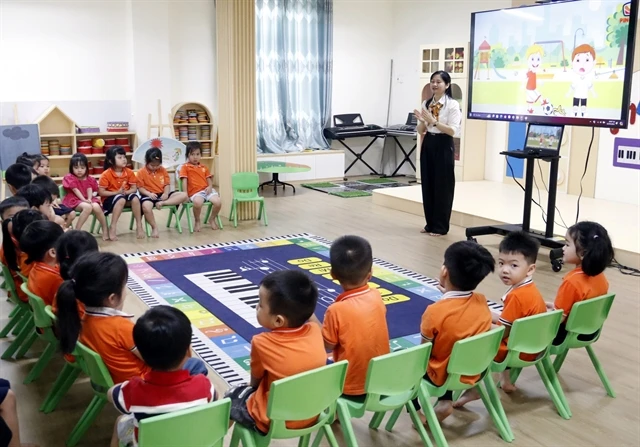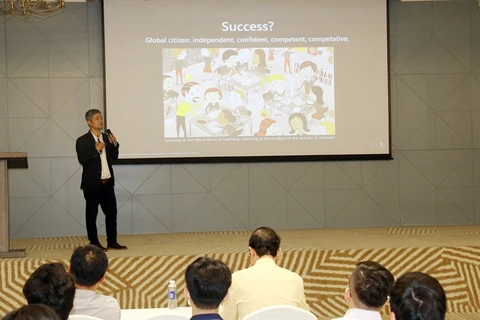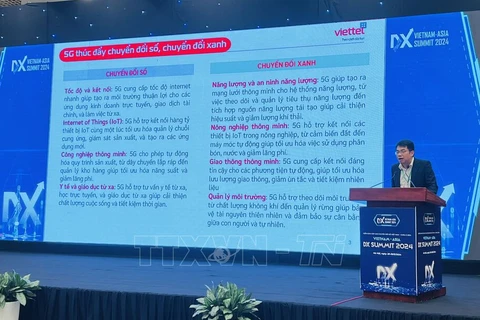
Hanoi (VNS/VNA) - Responsible Artificial Intelligence (AI) presents numerous dangers and obstacles in terms of ethics, society and the legal landscape in a fast-evolving socioeconomic environment. It requires a comprehensive and extensive view based on the development of relevant legal policies, according to experts.
Responsible AI - a global agenda issue - has attracted the attention of countries around the world, including Vietnam.
Associate Professor Nguyen Thi Que Anh, principal of the University of Law at the Vietnam National University, said AI is one of the basic elements of the fourth industrial revolution. In addition to its many advantages, AI has sparked serious worries about its possible drawbacks from an ethical, societal and legal standpoint.
Vietnam has determined that responsible AI requires looking at typical national methods from around the globe in order to learn from them and develop policy recommendations for Vietnam.
She noted that Vietnam should not imitate the foreign policies and legal systems of other nations, but must instead use its own analysis, assessments and apply relevant lessons.
Citing the educational sector as an example, she said AI is crucial to bringing the concept of personalised learning to life by modifying the pace, substance and method of instruction to meet the individual needs of each student.
With the aid of AI, data can be retrieved from a variety of sources, verified, and analysed using machine learning and predictive analytics technologies.
She said: “AI has enormous potential in education, acting as a catalyst for educational transformation for all stakeholders. However, there are possible ethical and social hazards associated with the use of AI applications in education, including those related to privacy, the preservation and use of student data, discrimination based on gender, race, socioeconomic status and aptitude levels, as well as societal and cultural prejudices.”
According to Dr Ton Quang Cuong, University of Education, Vietnam National University, the application of technologies such as computer vision, machine learning, natural language processing, intelligent robots, automation and sensors, have covered the entire Vietnamese education system from universal education to higher education and vocational training, even business training - lifelong education.
But there is an urgent need to determine and assess ethical norms in order to maximise advantages and minimise AI hazards because of the growing popularity of AI applications in education and the significance of this subject, he said.
The Ministry of Science and Technology recently released a decision outlining certain guidelines for researching and developing responsible AI systems, in light of the growing focus on responsible AI.
According to the ministry, the assessed AI systems will bring great benefits to people, society and the economy through supporting and solving difficult problems that people and communities are facing.
However, it is necessary to research and take measures to minimise risks while developing and using AI, balancing relevant economic, ethical and legal factors.
The ministry holds that AI research and development in Vietnam should be a human-centric resource, where everyone can enjoy the benefits of life and from AI systems.
The ministry also emphasised how important it is to reduce the possibility that AI systems could violate people's or organisations' legal rights or interests.
Nine guiding principles have been established for the study and creation of AI systems, including accountability, transparency, control ability, innovation promotion, security, privacy and respect for human rights and dignity./.






















